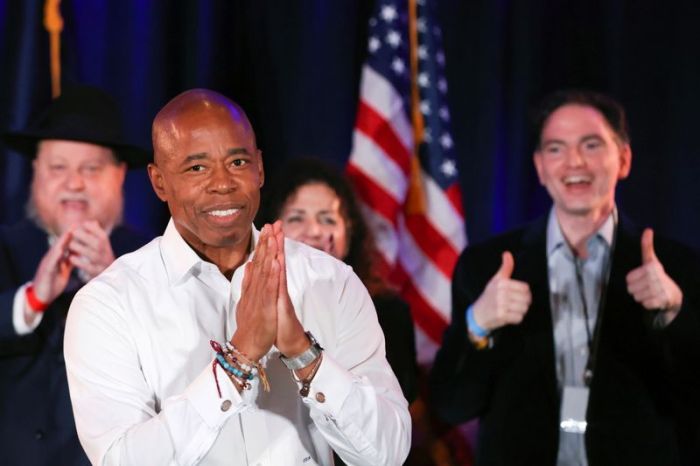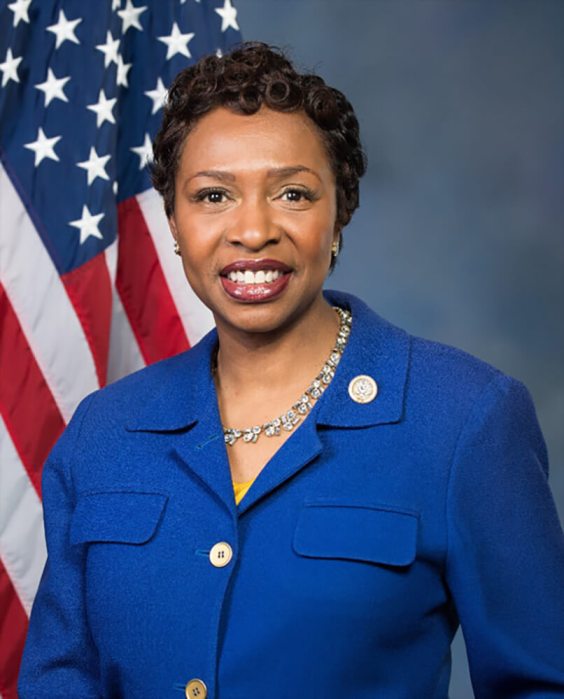WASHINGTON (Reuters) – Republican Glenn Youngkin’s upset victory in the Virginia governor race is likely to embolden and energize Republicans ahead of next year’s midterm elections, when control of Congress will be at stake.
In edging out Democrat Terry McAuliffe, Youngkin may have provided a model for Republican candidates in 2022, while Democrats must now fret over President Joe Biden’s sagging approval ratings and stalled agenda in Congress.
Here are some takeaways from Youngkin’s victory:
As Biden struggles, so does his party
Biden and his Democrats have had a rough year. The spread of COVID-19 and pockets of resistance to vaccines continue. The military pullout from Afghanistan was widely viewed as chaotic and mismanaged.
The president has struggled to cohere moderates and progressives around his big-ticket legislative agenda. At the same time, prices for consumer goods, food and fuel have shot up – with voters largely blaming the party in power.
Youngkin capitalized on those troubles, running up the score in rural Virginia and squeezing McAuliffe’s margins in critical suburban areas. While Biden won independents handily in 2020, 57% to 38%, Youngkin won them 54% to 45%, according to CNN exit polls.
McAuliffe, a former governor, brought his own baggage to the race. A well-known figure in Virginia with strong ties to Bill and Hillary Clinton, he did not give voters the fresh voice that political newcomer Youngkin offered.
But the losses by McAuliffe and other down-ballot Democrats in a state Biden won by 10 percentage points in November – along with a closer-than-expected New Jersey governor’s race – left no doubt that Democrats are now in a weaker position.
Signs are pointing to substantial Republican gains next year, said Bill McInturff, a Republican pollster.
“Every survey number we are seeing paints a bleak picture for President Biden and Democrats in Congress,” McInturff said.
It remains Trump’s party
Youngkin worked hard to separate himself from Donald Trump, but the former Republican president’s influence was felt nonetheless.
While Youngkin largely steered clear of endorsing Trump’s bogus claims that he lost last year’s elections due to fraud, he still made sure to back the principle of “voter integrity.” On Wednesday, Trump took credit for Youngkin’s win, citing the electoral strength of his passionate base.
Trump can point to Virginia as a repudiation of Biden while he sets the stage for another possible presidential run in 2024. And now his Republican Party has shown that it might be able to attract some of the suburban voters and independents it lost in the election last year, as long as Trump allows more centrist candidates in the mold of Youngkin to run their own races without constantly pledging fealty to him.
At the same time, Republicans in more conservative regions remain free to run on Trump’s MAGA platform with little risk of blowback. All together, it could make for the kind of coalition that seizes Congress for the party next year.
A non-Trump lane does exist
Even with the long shadow Trump and his false stolen-election claims continue to cast over the Republican Party, Youngkin showed how to keep his distance from Trump without incurring his wrath.
A former CEO of the Carlyle Group, Youngkin ran as an outsider businessman rather than a Trump acolyte. Unlike Trump, Youngkin was a full-throated advocate of vaccines, even as he opposed mandates. He avoided the scorched-earth rhetoric on issues such as immigration that Trump favors. He refused to cast doubt on the trustworthiness of the U.S. election system for fear of dampening turnout.
While Trump endorsed him multiple times, Youngkin resisted a full embrace to the point that Trump ultimately did not come to the state to campaign on his behalf.
Youngkin “is providing a model” for Republicans, said Tom Davis, a former Republican congressman from Virginia. “He has separated himself pretty well.”
No one was hoping Trump would come to the state more than McAuliffe, who spent much of his campaign trying to tie Youngkin to Trump at every turn. It didn’t work. Exit polls by NBC showed voters viewed Youngkin much more favorably than Trump, who remains unpopular in the state.
Even Trump took note. “All McAuliffe did was talk Trump, Trump, Trump and he lost!,” he said in a statement on Tuesday. “I guess people running for office as Democrats won’t be doing that too much longer.”
The culture wars around education are potent
Youngkin gained momentum in the race by focusing on education https://www.reuters.com/world/us/culture-war-education-rages-virginia-governors-race-2021-07-22, a strategy Republicans likely will mimic nationally next year as schools have become ground zero for several U.S. culture wars.
The Republican seized on tensions between parents and school boards over policies for COVID-19 school closures and safety protocols, gender issues and the teaching of “critical race theory” – a term misused to describe antiracism curricula that Youngkin said was evidence that school districts were drifting too far leftward.
McAuliffe may have made the largest mistake of the campaign when, at a debate, he said, “I don’t think parents should be telling schools what they should teach.” The remark soon became a centerpiece of Youngkin attack ads – and the issue as a whole may have resonated with scores of suburban parents frustrated after seeing their children kept at home for more than a full school year during the pandemic.
Voters who believed parents should have a lot of say over what schools teach went for Youngkin 76% to 23%, according to CNN exit polls. Conversely, of the voters who listed the virus as their top concern, 83% went for McAuliffe and just 17% for Youngkin, CNN said.
“Youngkin’s massive overperformance was tied to the issues of schools – and an uprising from parents, who became overnight homeschoolers,” said Doug Heye, who worked as a top aide to Eric Cantor, a former Republican congressman from Virginia.
(Reporting by James Oliphant; Editing by Soyoung Kim, Colleen Jenkins and Alistair Bell)

























